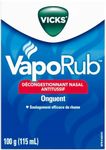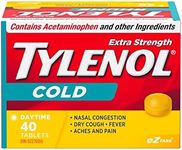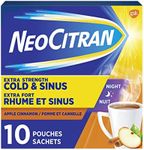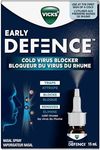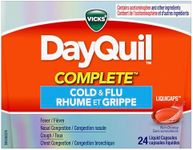Buying Guide for the Best Cold Medicines
Choosing the right cold medicine can make a big difference in how comfortable you feel while you recover. The best approach is to match the medicine to your specific symptoms, since cold medicines often target different issues like congestion, cough, or fever. It's important to read labels carefully and understand what each ingredient does, so you can avoid taking unnecessary medications or doubling up on similar ingredients. Always consider your own health conditions and any other medications you might be taking, and when in doubt, consult a healthcare professional.Active IngredientsActive ingredients are the chemicals in the medicine that actually treat your symptoms. Common ones include decongestants, antihistamines, cough suppressants, expectorants, and pain relievers. Knowing which active ingredient addresses which symptom is important because you want to target only the symptoms you have. For example, if you only have a runny nose, you might not need a medicine with a cough suppressant. Always check the label to avoid taking multiple medicines with the same active ingredient, which can lead to accidental overdose.
Symptom TargetingCold medicines are often labeled for specific symptoms like 'cough,' 'congestion,' or 'multi-symptom.' This is important because taking a medicine that targets symptoms you don't have can lead to unnecessary side effects. If you have just a sore throat, look for a medicine that focuses on pain relief. If you have several symptoms, a multi-symptom formula might be more convenient. Think about your main discomforts and choose a product that matches those needs.
Form (Liquid, Tablet, Capsule, Powder)Cold medicines come in different forms such as liquids, tablets, capsules, and powders. The form can affect how quickly the medicine works and how easy it is to take. Liquids are often easier for children or people who have trouble swallowing pills, while tablets and capsules are more portable and have a longer shelf life. Powders can be mixed with water and may be soothing if you have a sore throat. Choose the form that fits your lifestyle and comfort.
Drowsiness PotentialSome cold medicines, especially those with certain antihistamines, can cause drowsiness. This can be helpful if you need rest, but not ideal if you need to stay alert during the day. Medicines are often labeled as 'daytime' or 'nighttime' to help you choose. If you need to be active, look for non-drowsy formulas. If you have trouble sleeping due to your symptoms, a nighttime formula might be a better fit.
Duration of ActionThe duration of action tells you how long the medicine will work before you need another dose. Some medicines are short-acting and need to be taken every 4-6 hours, while others are long-acting and last 12-24 hours. If you want relief throughout the day or night without having to remember multiple doses, a longer-acting medicine may be more convenient. If you only need occasional relief, a shorter-acting option might be sufficient.
Sugar and Alcohol ContentSome cold medicines, especially liquids, contain sugar or alcohol. This is important for people with diabetes, those avoiding alcohol, or parents giving medicine to children. Sugar-free and alcohol-free options are available and are a better choice if you have concerns about these ingredients. Always check the label if this is important for your health or lifestyle.

